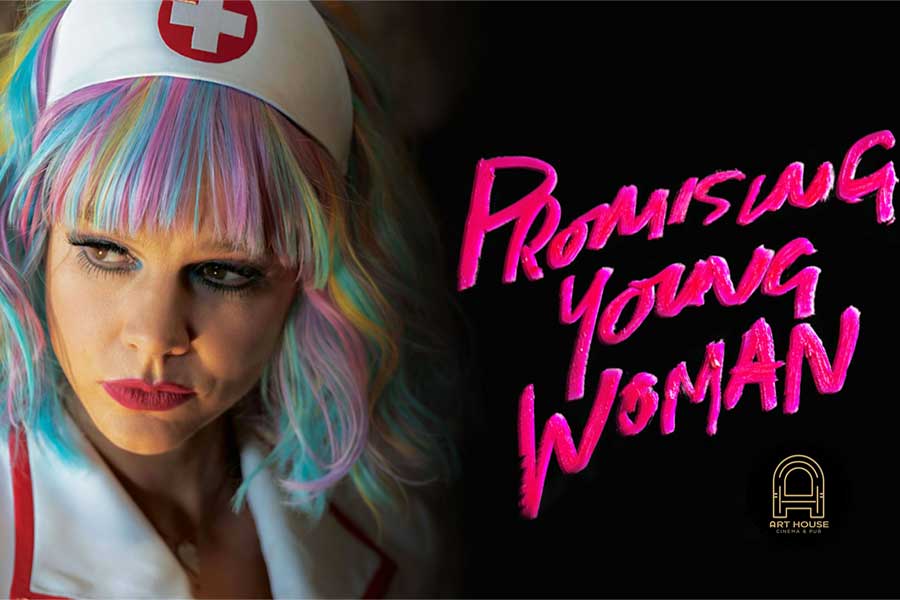
Films Review | Apr 30,2021
There is only one thing worse than a stalker - a stalker that is invisible. We are afraid of what we cannot see, but we are even more afraid of what can see us without being noticed.
But the villain of The Invisible Man is not uninterested in being noticed. He wants to be known, although only to those he is terrorising, so that they appear to be crazy, so that they will never get the help they require.
The plot of the movie revolves around a woman, Cecilia (Elisabeth Moss), who had the bad luck of moving in with Adrian Griffin, a ludicrously rich optical scientist. He is an abusive, obsessive mad man who wants to control her in every way. She finally manages to escape from his house, which has embassy-level electronic security, in the middle of the night.
She stays under the radar for a couple of weeks by staying at a detective friend’s house. She thinks she does not have to hide any longer when she gets the news from her sister that Adrian has committed suicide. He also leaves five million dollars to her name in his will.
For a while, the world seems to be a better place. She starts searching for jobs and begins repaying the friend, and his daughter, for taking her into their home in her time of need. This is despite having the nagging feeling that for a person as rich, powerful and intelligent as Adrian, suicide seemed like a strange way to deal with his problems.
Was his hardened outer persona just a front for a deeply rooted vulnerability?
Not really. She gradually becomes convinced that he is still alive and stalking her as strange things keep happening to her. It is clear that he is not dead, but has managed to make himself invisible, when she gets into a physical fight with what seems like an apparition. Unfortunately, it becomes near-impossible to persuade others that a man that has been declared dead is still alive. She starts to be seen as hysterical and is left to fend for herself.
The film offers a smart metaphor for the abuses and mistreatment that women experience on a daily basis, which society (specifically men) refuse to see and assume are non-existent. It also offers a biting commentary on how we view women who call attention to the patriarchal-bent of our institutions, not to mention our understanding of human history (as but an experience of the male member of the species). Such women are regarded as being loud, angry, agitated and humourless.
Moss, who would be a more popular star if the world was a fairer place, brilliantly takes on the role of Cecilia, who takes matters into her own hands as her options are depleted, and those around her begin to regard her as a nuisance. Her performance is not unique but provides the counter that movies based on fantasy – supernatural or science-inspired – require.
I do not imagine this was a pleasant experience for her, given that she had to simulate the extreme emotional and psychological trauma faced by her character, but she soldiers on to deliver one of the best performances of her life.
If part of the movie's success is due to Moss, then the other part is due to Leigh Whannell, writer and director of the movie. Rarely is a horror movie as good or able to make a relevant point. Take Paul Verhoeven's Hollow Man, for instance, a film inspired by the same source material as this one, which is merely a slasher movie.
Even H.G. Wells’ original The Invisible Man has not aged well. Although the science was fascinating, the theme (that man should not play God) and the plot (a scientist, after managing to make himself invisible, slowly goes mad) have become middling, given how they have become cliches in mainstream horror movies.
In this version, Whannell brings the source material into the modern era. In barely even showing us what Griffin looks like, he insists that it is actually about Cecilia. The invisible man is just a representation of what women face.
This was a fantastic theme and leads me to question why this movie has not become as popular within the mainstream liberal camp as Get Out, another horror movie with social commentary, albeit directed by an individual who would have experienced what he is commenting on.
Would The Invisible Man have garnered more attention if it had been written and directed by a woman? Is this just another instance of a white guy “mansplaining”?
I do not know. What I know is that this is a movie that says some very interesting things about the society we live in. Besides the terrible decision to include a plot twist in the third act, which exposed the film to a deluge of plot holes, it was also entertaining and suspenseful to watch. For that, I am grateful.
PUBLISHED ON
Mar 07,2020 [ VOL
20 , NO
1036]

Photo Gallery | 146381 Views | May 06,2019

Photo Gallery | 136538 Views | Apr 26,2019

My Opinion | 134325 Views | Aug 14,2021

My Opinion | 130895 Views | Aug 21,2021

Aug 30 , 2025
For Germans, Otto von Bismarck is first remembered as the architect of a unified nati...

Aug 23 , 2025
Banks have a new obsession. After decades chasing deposits and, more recently, digita...

Aug 16 , 2025
A decade ago, a case in the United States (US) jolted Wall Street. An ambulance opera...

Aug 9 , 2025
In the 14th Century, the Egyptian scholar Ibn Khaldun drew a neat curve in the sand....

Aug 30 , 2025
At a high-profile event held at the Sheraton Addis last week, the launch of Dashen Ba...

Aug 30 , 2025 . By NAHOM AYELE
Ethio telecom, one of the long-standing state-owned monopolies, has publicly committe...

Federal education officials have issued a stern warning to private colleges, where a...

Aug 30 , 2025 . By BEZAWIT HULUAGER
The Ethiopian Insurance Corporation (EIC) delivered a robust pre-tax profit of 1.98 b...